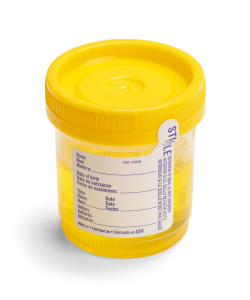 When people think of a DUI charge (called ‘OVI’ in Ohio), most think of drunk driving. This is where the bulk of the money and effort have been concentrated to raise awareness: think of the “Buzzed Driving is Drunk Driving” or “Over the Limit, Under Arrest” advertising campaigns. However, with more states legalizing marijuana for medical and recreational use, more people are finding themselves charged with OVI stemming from alleged marijuana impairment. This is a trend we have been following for some time. For people charged with a Marijuana OVI, a frequent question is: How long is THC detectable in your system?
When people think of a DUI charge (called ‘OVI’ in Ohio), most think of drunk driving. This is where the bulk of the money and effort have been concentrated to raise awareness: think of the “Buzzed Driving is Drunk Driving” or “Over the Limit, Under Arrest” advertising campaigns. However, with more states legalizing marijuana for medical and recreational use, more people are finding themselves charged with OVI stemming from alleged marijuana impairment. This is a trend we have been following for some time. For people charged with a Marijuana OVI, a frequent question is: How long is THC detectable in your system?
What is THC?
Tetrahydrocannabinol, or THC, is the primary psychoactive ingredient in marijuana that produces the feeling of being high. As your body metabolizes THC, it breaks THC down into component compounds called “metabolites”. The two metabolites tested in Ohio OVI cases are Hydroxy THC and Carboxy THC. Hydroxy THC is psychoactive and can indicate the person tested is or recently was experiencing the effects of THC. Carboxy THC is non-psychoactive, and its presence does not indicate the person tested is impaired. Further, the presence of Carboxy TCH does not even indicate the person used marijuana recently. We have discussed the issues created by these metabolites in OVI law previously in this space.
Not All Drugs are Created Equal
The length of time that THC is detectable in a person’s blood is just one of its many differences from alcohol. Most people, accounting for some variances due to gender, weight, and various medical conditions, distribute and eliminate alcohol in a fairly consistent and predictable manner. This predictable process is the basis of the blood testing and breath testing used in many OVI cases. Alcohol testing is valuable because a person’s blood alcohol content (BAC) is directly correlated with the person’s level of impairment: the higher the BAC at any given time, the more the person experiences the effects of the alcohol.
Marijuana, on the other hand, does not behave so predictably. Studies have shown that how much a person feels the effects of marijuana actually lags behind the peak levels of THC detected in their blood. This means there is no correlation between the level of THC present in a driver’s blood and how impaired they may be. The lack of correlation between THC levels and a person feeling high means someone with a lower level of THC in their blood could actually be more impaired than someone with a higher THC level.
So, if you’ve used marijuana recently, how long do you need to worry about a potential OVI charge?
How Long is THC Detectable in a Drug Test?
Like so many questions we get asked as lawyers, the answer here is: it depends.
Both THC and Hydroxy THC, which, as discussed above, are both psychoactive compounds and can indicate impairment, begin to dissipate from the body shortly after ingestion. Typically, they are no longer detectable a matter of hours after use when ingested by smoking. If ingested orally (as an edible), these compounds are detectable longer. However, as many college students applying for a summer job can attest, this is not the end of the story.
Caboxy THC, the non-psychoactive metabolite which is a common basis for Marijuana OVI charges, can be found in the urine of an occasional user for days after use. What’s more, in a regular user, whether recreationally or medically, Carboxy THC can be detectable in urine for up to five weeks after use. Since Ohio allows for OVI charges to be based solely on the level of Carboxy THC detected in a test, a regular marijuana user could be deemed “per se” impaired even if they haven’t used marijuana in weeks.
What Should You do if You’re Charged with a Marijuana OVI?
Many people may feel hopeless if they are charged with an OVI based on the presence of a marijuana metabolite in a urine or blood test. However, that test is just one piece of evidence out of many which form an OVI case. Somebody facing this type of charge should hire an OVI attorney who is well-versed in every aspect of OVI defense, including blood and urine testing. A qualified attorney will be able to evaluate each part of the prosecution’s case and present defenses aimed at reaching the best possible outcome.
 Columbus OVI/DUI Attorney Blog
Columbus OVI/DUI Attorney Blog

